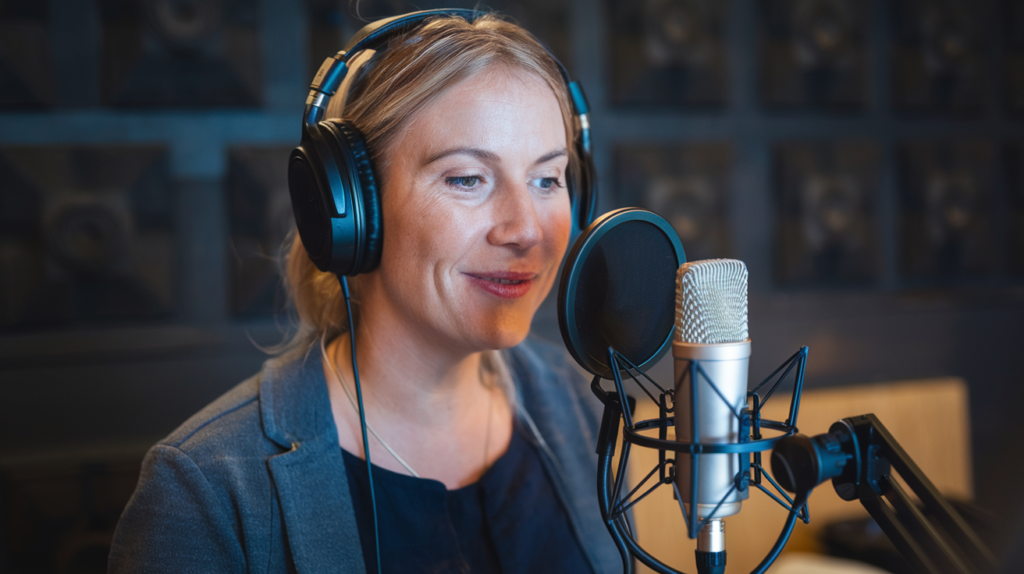Key Takeaways
- Cultural Relevance: Choosing between Māori and New Zealand English voiceovers greatly impacts how your message connects with audiences, emphasizing the importance of cultural context.
- Audience Targeting: Opt for Māori voice talent to engage specifically with Māori communities, while New Zealand English is better suited for broader demographics seeking clarity and accessibility.
- Authenticity Matters: Incorporating te reo Māori adds emotional depth and authenticity to projects aimed at celebrating cultural heritage, fostering trust among listeners.
- Regional Nuances: Understanding regional variations in New Zealand English helps tailor delivery styles that resonate more effectively with specific target groups.
- Collaboration Importance: Working with experienced voice actors knowledgeable about these languages can enhance project outcomes by ensuring messages are conveyed authentically and effectively.
- Versatility of Language Options: Both language choices offer unique benefits; weigh their pros and cons against your project goals to determine the best fit for your voiceover needs.
Ever wondered whether to choose Māori or New Zealand English for your next voiceover project? The decision can be tricky. Each option brings its own flavor and cultural significance, influencing how your message resonates with the audience.
Overview of Voiceovers in New Zealand
Voiceovers hold a significant place in New Zealand’s media landscape. They serve various purposes, from commercials to documentaries and animations. Understanding the nuances between Māori and New Zealand English can enhance your project’s impact.
Māori voice talent brings cultural depth to projects, connecting with audiences on a personal level. Using Māori language not only respects its heritage but also engages local communities effectively. For instance, if you’re targeting a Māori audience, incorporating native speakers can resonate more profoundly.
New Zealand English offers versatility and accessibility. It’s widely understood and appreciated across diverse demographics. This option suits projects aimed at broader audiences where clarity is key. With many skilled voice artists available, finding the right voice over talent for your needs becomes straightforward.
Deciding between these two options depends on your target audience and message intent. Are you aiming for inclusivity or cultural specificity? Each choice carries weight and influences how your content is perceived.
Consider collaborating with experienced voice actors who understand these dynamics well. Their expertise can guide you toward the most effective decision for your project’s goals while ensuring authenticity shines through every word spoken.
Understanding Maori Language
Māori language, or te reo Māori, plays a vital role in New Zealand’s identity and culture. Understanding its nuances enhances the effectiveness of voiceovers that incorporate this rich linguistic heritage.
Historical Context
Māori language has roots dating back to the arrival of Polynesian voyagers over 1,000 years ago. It developed uniquely in Aotearoa (New Zealand), influenced by local customs, traditions, and environments. The colonial period posed significant challenges for te reo Māori, leading to a decline in usage. However, revitalization efforts since the 1980s have sparked renewed interest and pride among speakers. This historical context shapes how audiences perceive voiceovers in Māori today.
Cultural Significance
The cultural significance of Māori extends beyond mere language; it embodies stories, values, and connections to land and ancestry. Choosing a voice actor who speaks te reo Māori fluently adds authenticity to projects targeting Māori communities. This connection fosters trust and relatability with listeners. Furthermore, using indigenous voices can elevate narratives around cultural themes or social issues relevant to New Zealand’s diverse population. Engaging with these elements ensures your message resonates deeply across various platforms—from commercials to documentaries—making it memorable for all audiences involved.
New Zealand English Explained
New Zealand English reflects the unique identity and culture of New Zealand. This variant of English incorporates local slang, pronunciation, and influences from Māori, making it distinct from other forms of English. Understanding its nuances is essential for effective voiceovers that resonate with audiences.
Regional Variations
Regional variations in New Zealand English contribute to its richness. Dialects can differ significantly between urban and rural areas. For instance, Auckland accents vary from those in Christchurch or Dunedin. These differences can affect how a voice actor delivers lines and connects with listeners. A voice over artist familiar with these regional traits adds authenticity to projects targeting specific demographics.
Unique Expressions
Unique expressions define New Zealand English and enrich communication. Phrases like ”sweet as” or ”no worries” create an informal tone that fosters relatability. Using such expressions in your voiceover can help convey a friendly vibe that appeals to your audience’s familiarity with local culture. When selecting a voice talent for your project, consider one who effortlessly integrates these unique aspects into their delivery; this approach ensures your message feels genuine and engaging.
Pros and Cons of Each Language for Voiceovers
Choosing between Māori and New Zealand English involves weighing the strengths and challenges of each language option. Understanding these can help you make a more informed decision for your voiceover project.
Benefits of Māori for Voiceovers
Māori brings a unique cultural depth to voiceovers, connecting with audiences on an emotional level. Incorporating this language can enhance authenticity, especially when targeting Māori communities. A fluent voice actor in te reo Māori not only delivers the message but also respects and honors its cultural significance. This connection fosters trust among listeners, making your content more relatable. Plus, using Māori can set your project apart in a crowded market, highlighting commitment to inclusivity.
Benefits of New Zealand English for Voiceovers
New Zealand English offers versatility that appeals to broader audiences. It’s accessible and widely understood, ensuring clarity in communication across various platforms. Engaging a skilled voice artist familiar with local slang and expressions enriches your project’s impact—think phrases like ”sweet as” or ”no worries.” These nuances create an informal tone that resonates well with listeners. Moreover, regional variations allow for tailored delivery based on specific target demographics, enhancing relatability further while maintaining the essence of New Zealand’s identity.
By evaluating these pros and cons carefully, you’ll find the right approach that aligns with your voiceover goals and audience expectations.
Practical Considerations in Choosing
When deciding between Māori and New Zealand English for voiceovers, several practical factors come into play. Understanding your audience’s preferences and the specific requirements of your project shapes this choice significantly.
Audience Preferences
Audience preferences greatly influence the effectiveness of voiceover talent. If your target demographic includes Māori speakers or those connected to Māori culture, opting for a fluent Māori voice actor can create a deeper connection. Using te reo Māori resonates with authenticity, ensuring that messages feel personal and relatable. On the other hand, broader audiences may respond better to New Zealand English due to its accessibility. Familiarity with local slang and expressions can enhance engagement, making it essential to consider who will be consuming the content.
Project Requirements
Project requirements dictate many aspects of choosing voice over talent. For instance, if clarity is paramount—like in instructional materials or advertisements—New Zealand English might serve you best. It allows for clear communication across diverse audiences without cultural barriers. Alternatively, projects aimed at celebrating cultural heritage or storytelling might benefit from a Māori voice artist’s unique perspective and emotional depth.
Additionally, think about regional variations within New Zealand English; different dialects can affect delivery styles and interpretations. Ensure that the chosen voice actor aligns with your project’s tone and intent while reflecting the nuances you want to convey.
By carefully analyzing both audience needs and project specifications, you can make informed decisions that elevate your message through effective voiceovers tailored to resonate with listeners.
Conclusion
Choosing between Māori and New Zealand English for your voiceover project comes down to understanding your audience and the message you want to convey. Each language has its own strengths that can elevate your content in unique ways. If you’re aiming for cultural depth and emotional resonance particularly with Māori audiences a fluent Māori voice actor is invaluable. On the other hand if clarity and broader accessibility are key New Zealand English may be the better option.
By carefully considering these factors you’ll not only enhance the effectiveness of your voiceovers but also ensure that your message connects meaningfully with listeners across diverse backgrounds. Making an informed choice will ultimately contribute to achieving your project’s goals while respecting New Zealand’s rich linguistic heritage.
Frequently Asked Questions
What factors should I consider when choosing between Māori and New Zealand English for voiceovers?
When selecting between Māori and New Zealand English, consider your target audience and the project’s goals. If your project aims to connect with Māori communities, a fluent Māori voice actor may deepen emotional resonance. Conversely, New Zealand English is more accessible for broader audiences where clarity is key.
How does using Māori in voiceovers enhance audience connection?
Using Māori adds cultural depth and authenticity, which can create a more personal connection with listeners, especially within Māori communities. It resonates emotionally by reflecting their stories, values, and identity.
Why is understanding New Zealand English important for voiceover projects?
Understanding New Zealand English is vital because it captures local slang, pronunciation, and regional dialects that resonate with audiences. Effective voiceovers must reflect these nuances to ensure clarity and relatability in communication.
What are the advantages of using Māori for voiceover work?
Māori brings cultural richness and enhances authenticity in storytelling. It fosters trust among listeners by connecting them to their heritage while making messages feel relatable within specific communities.
When should I choose New Zealand English over Māori for my project?
Opt for New Zealand English when targeting a diverse or wider audience requiring clear communication. Its versatility ensures that your message remains accessible to all demographics without losing engagement.
How do regional variations affect the choice of language in voiceovers?
Regional variations can significantly impact delivery styles in New Zealand English. Different dialects might have unique pronunciations or expressions that can affect how well the message resonates; it’s essential to select talent familiar with these nuances.
Can collaborating with experienced voice actors improve my project outcomes?
Yes! Collaborating with experienced voice actors who understand cultural dynamics ensures authenticity in tone and delivery. They can effectively integrate local elements into their performances, enhancing overall impact on the audience.







